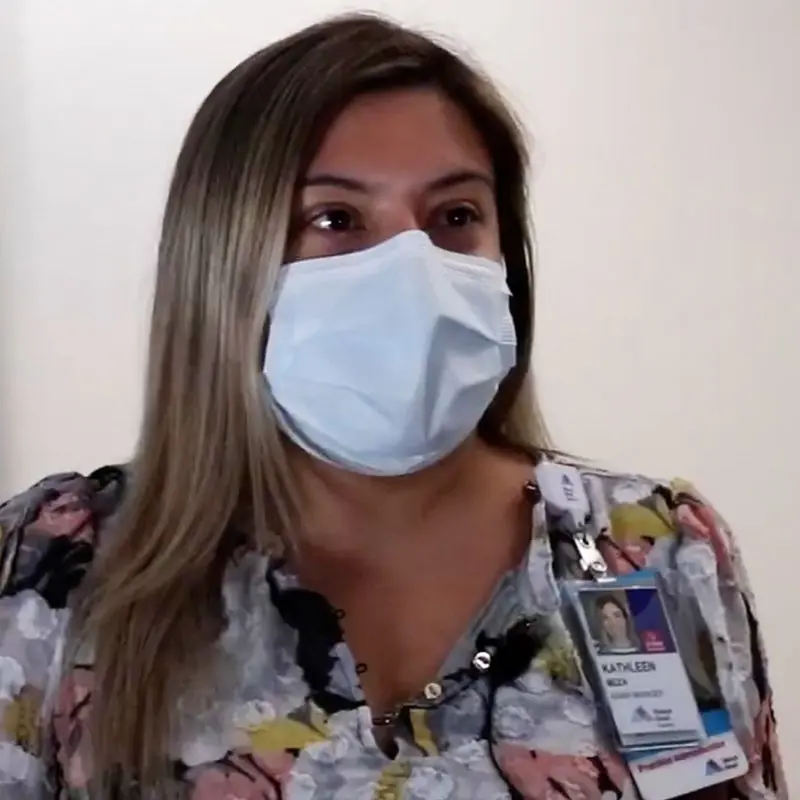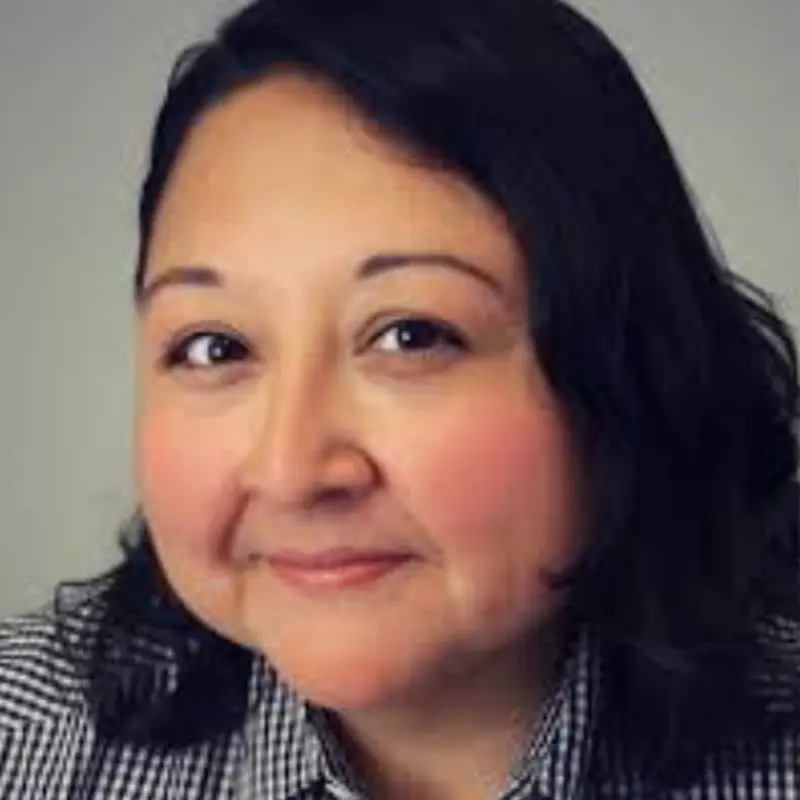Throughout Mount Sinai Health Network practices, elevating the patient experience is a priority. “The Network” extends Mount Sinai’s ambulatory care footprint deep into the boroughs of New York, Westchester, Long Island, New Jersey, and Palm Beach, Florida. The physicians and employees at Health Network practices pride themselves on offering patients easy access to high-quality medical care closer to home. “These employees are not just serving the community, they are members of the community,” says Carla Moscoso, Director of Practice Operations at Mount Sinai Doctors-Astoria.
The ambulatory practice is seen as a prime example of dedication to the community through improving the patient experience. The facility is connected to Mount Sinai Queens, which became a hot spot early in the COVID-19 pandemic. Many clinicians and administrative staff were reassigned, or “deployed,” and given new hospital-based roles in 2020.
One such administrator was Kathleen Meza, practice manager for Mount Sinai Doctors-Astoria. Reflecting on her deployment at the hospital, Kathleen singles out the important role Mount Sinai plays in the community: “I think we’re just so lucky, especially here. I don’t know if it’s an Astoria thing, but it feels like a super tight-knit community. We get that love all the time, honestly even before COVID-19. There is so much appreciation for our hospital being here in general. It sounds so cliché but even just saying that you work for Mount Sinai, people are happy; happy you’re there.”
Ms. Moscoso views patient satisfaction as inseparable from employee satisfaction. “If employees are happy and want to be at work, patients can tell,” she says.
The practice's leadership focuses on retention of both administrative staff and physicians by building foundations of communication and trust. Ms. Moscoso and Ms. Meza say they work deliberately to make staff feel supported and empowered. Whenever possible, they create opportunities for internal promotion and informal leadership roles. Leaders encourage staff to think creatively and put “purpose over task”.
By creating and nurturing trust among staff, leaders ensure that each employee can perform to the full extent of their education and training. Staff understand when it is appropriate to problem-solve independently and when an issue needs to be escalated to management. “Trusting the staff fosters a better teamwork system,” Ms. Moscoso says, “and building confidence transfers into improving the patient experience.”
“If I were on the Forbes billionaire list, I’d still see my doctors here.”
A Mount Sinai Doctors-Astoria patient

Kathleen Meza, Practice Manager

Carla Moscoso, Director of Practice Operations
The leadership of Mount Sinai Doctors-Astoria is committed to open communication. In addition to the daily Health System huddle, a daily team huddle has also been implemented, where staff are active participants. Carla prompts team members to share a recent patient encounter, positive or negative, and explain what was learned from the encounter. Staff members are asked on a regular basis if they have cost-savings ideas or recommendations. Employees also get a chance to recognize the efforts of colleagues who have gone above and beyond by giving shout-outs during the huddle.
The leaders know the importance of modeling how to take care of patients and each other. This was demonstrated not only during COVID-19 deployment but was embedded in their daily work. They have an open-door policy for patients and staff alike, creating an environment of transparency and connection. Staff may see Ms. Moscoso sitting in the waiting room, speaking with patients to either help them with an issue or just say a quick hello, or offering to escort a patient who is lost to their appointment in the building. Leaders have also been known to provide coverage if an area of the practice is short-staffed. “Directors can't confidently teach staff how to do their job if they don't know how to do the job themselves,” Ms. Moscoso says. “It’s important to know each other’s roles.”
These behaviors have measurable outcomes. Physician and employee retention rates are high, as is attendance. The practice attracts younger physicians who are interested in building a patient panel as well as the community. A camaraderie has been established between the clinicians and staff, built on mutual respect and trust by following through on actions. Patient satisfaction scores are consistently high for both CGCAHPS and Quality Reviews surveys.
Because of the staff’s service-recovery work and commitment to process improvement, patients report in survey comments that they can see improvements over time. Patients know they will receive safe, compassionate, and equitable care shaped by the practice’s values and organizational culture. One patient comment states, “Highly recommend the team for their exceptional coordination of care, as they were not only flexible in scheduling but also continuously followed up, courteously and patiently, never letting up on any frustrations.”
Patients who seek care at Mount Sinai Doctors-Astoria feel a sense of loyalty to the practice. “If I was on the Forbes billionaire list,” one patient wrote, “I’d still see my doctors here.”